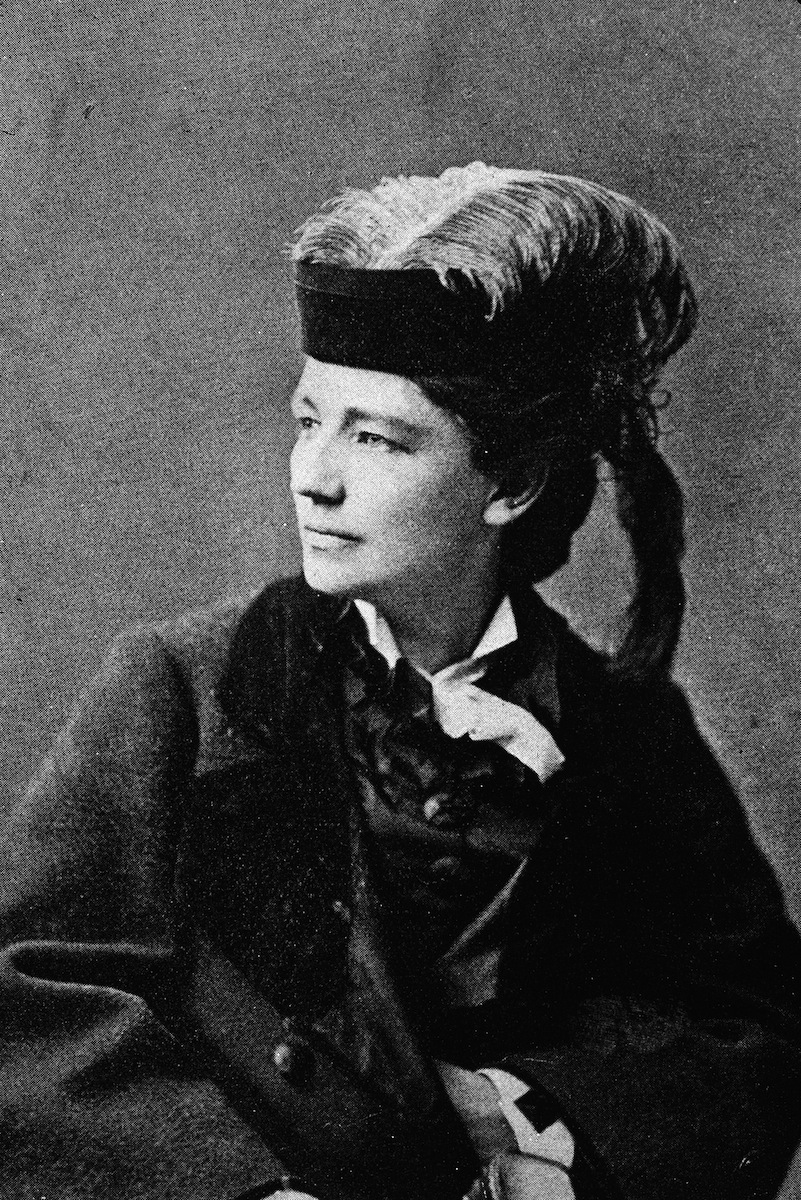
These days, Hillary Clinton is making headlines as the potential female President of the United States — and she hasn’t even declared that she’s running. But, though a Clinton run would still be history-making, it was more than a century ago that the U.S. saw its first major-party female presidential candidate: Victoria Claflin Woodhull.
Woodhull — who was born this day, Sept. 23, in 1838 in Homer, Ohio — challenged Ulysses S. Grant in the 1872 presidential election as the Equal Rights Party candidate. Her bid was unsuccessful, and she’s mostly faded from history except as a frequent sidebar to articles about other women running for the highest office. (For example: TIME wrote about her in 1964 when Senator Margaret Chase Smith ran, and again in 1984 when Geraldine Ferraro ran for VP.)
Still, she campaigned with flair, publicly proclaiming her beliefs in, as TIME put it in 1964, “spiritualism, vegetarianism, short skirts, legalized prostitution, and free love.”
A suffragist whom other suffragists tended to keep at arm’s length, Woodhull was often described in terms her women’s movement peers might have eschewed: “beautiful,” “bosomy” and “not entirely scrupulous.”
She and her younger sister Tennessee got their start as healthcare practitioners of dubious merit, peddling elixirs, psychic healing and metaphysical remedies. One big sale was enough to launch the pair, however. TIME recounted how in 1984:
Inspired, she said, by a vision of Demosthenes, Woodhull and her sister went to New York and arranged to introduce themselves to the newly widowed Commodore Cornelius Vanderbilt, 84. With her ‘magnetic treatment’ Tennessee soothed the railroad tycoon so successfully that he backed the young sisters in opening a lucrative stock brokerage.
Woodhull used her earnings to start a newspaper, Woodhull & Claflin’s Weekly, which supported her political ambitions as well as her pet causes. It’s unclear whether her activism ultimately helped or hurt the women’s movement, but it certainly garnered attention. She was nothing if not dramatic:
As an orator, Woodhull bowed to no man. ‘We mean treason; we mean secession…’ she declared. ‘We are plotting revolution; we will [overthrow] this bogus Republic and plant a government of righteousness in its stead.’ When someone dared to ask whether she practiced her preachings of free love, she defiantly answered, ‘Yes! I have an inalienable, constitutional and natural right to love whom I may.’
When her fellow suffragists questioned Woodhull’s place in the movement, however, Stanton defended her. “If Victoria Woodhull must be crucified,” she said, “let men drive the spikes.”
As a presidential candidate, Woodhull was not quite crucified, but met an ignominious end on election night, which she spent in jail on an obscenity charge.
“She got very few votes,” TIME commented drily.
Read the full profiles of Woodhull here, in TIME’s archives: Madam Candidate (1964) and Braving Scorn and Threats (1984)
More Must-Reads from TIME
- How the Economy is Doing in the Swing States
- Democrats Believe This Might Be An Abortion Election
- Our Guide to Voting in the 2024 Election
- Mel Robbins Will Make You Do It
- Why Vinegar Is So Good for You
- You Don’t Have to Dread the End of Daylight Saving
- The 20 Best Halloween TV Episodes of All Time
- Meet TIME's Newest Class of Next Generation Leaders
Contact us at letters@time.com